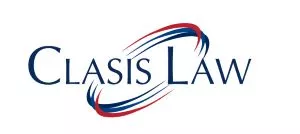- within Litigation and Mediation & Arbitration topic(s)
- in United States
- with readers working within the Law Firm industries
- within Employment and HR, Consumer Protection, Government and Public Sector topic(s)
- with readers working within the Technology, Metals & Mining and Law Firm industries
Introduction:
In a significant ruling dated 22.10.2024, the Hon'ble High Court of Delhi in MS CP Rama Rao v. National Highways Authority of India, W.P.(C) 11484/2023, examined the following two pivotal legal questions:
- the maintainability of a writ petition under Article 227 of the Constitution of India in response to an impugned order 'perceived' as a refusal to entertain an application under Section 34 of the Arbitration and Conciliation Act, 1996 ("A&C Act"); and
- the interpretation of Section 42 of the A&C Act by the District Judge, which directed subsequent arbitration-related applications to the High Court based on a prior application under Section 11 A&C Act.
Facts:
The petitioner filed a writ petition under Article 227, thereby, challenging the order passed by the District Judge, wherein it was held that the application filed under Section 34 A&C Act was not maintainable before the commercial court. The said order was backed with the reasoning that the earlier application for appointment of arbitrator under Section 11(6) of A&C Act was filed before the High Court. Thus, as per the requirement of Section 42 of the A&C Act, all subsequent applications need to be made before the same High Court. Thus, by way of writ petition the petitioner claimed that the District Judge's order was erroneous and that the commercial court was not competent to hear the application under Section 34 of the A&C Act.
Observations:
The High Court while examining the maintainability of the writ petition under Article 227, considered various judgments1 wherein it was held that an order declining to adjudicate a Section 34 application for lack of jurisdiction does not equate to an order "refusing to set aside an arbitral award" within the meaning of Section 37(1)(c) of the A&C Act. Therefore, no appeal under Section 37(1)(c) of the A&C Act would be maintainable in case of return of the case for lack of jurisdiction. Thus, the High Court observed that invoking Article 227 would be an appropriate remedy.
It was further observed that the constitutional power of superintendence under Article 227 remains unaffected by statutory provisions like Section 37 of the A&C Act or Section 8 of the Commercial Courts Act, 2015.
Further, while dealing with the interpretation of Section 42 of the A&C Act, the High Court, in its analysis of the facts and earlier precedents2, found that Section 42 of the A&C Act does not apply to proceedings initiated under Section 11 of the A&C Act. The High Court further observed that an application under Section 11 for the appointment of an arbitrator is not considered an application made to a "court" as defined under Section 2(1)(e) of the A&C Act. Consequently, Section 42 of the A&C Act, which mandates that subsequent applications be filed in the court where the initial application was made, is inapplicable to Section 11 applications.
Decision:
The High Court held that the District Judge's interpretation of Section 42 of A&C Act was incorrect, stating: "A petition under Section 11 for the constitution of an arbitral tribunal cannot be recognized as an application made to a court." Consequently, the High Court set aside the order of the District Judge and directed the revival of the Section 34 application before the commercial court for fresh consideration.
Conclusion and Way Forward:
The present judgment reaffirms that under Article 227, a High Court is under a duty to keep inferior courts and tribunals within the bounds of their authority. The order capsulates the fact that the remedy under Article 227 being a constitutional remedy could not be affected by a statute framed by a legislature which was itself a creature of the constitution. However, it has been noted that the said power is not unrestricted or meant to correct every erroneous decision by a subordinate court or Tribunal and thus would be exercised only in utilised where a failure to correct may amount to grave injustice. Thus, High Court specifically held that when a Section 34 application is dismissed solely on jurisdictional grounds, it does not constitute an order "refusing to set aside an arbitral award" under Section 37(1)(c) of the A&C Act, thereby precluding an appeal under Section 37. In such instances, where the parties are remediless, a writ petition under Article 227 is the appropriate recourse, allowing the High Court to correct jurisdictional errors without statutory appeal constraints.
Footnotes
1. BGS SGS Soma JV v. NHPC Limited [(2020) 4 SCC 234] and Black Diamond Trackparts Pvt. Ltd. v. Black Diamond Motors Pvt. Ltd. [2021 SCC OnLine Del 3946]
2. State of West Bengal v. Associated Contractors [(2015) 1 SCC 32]




